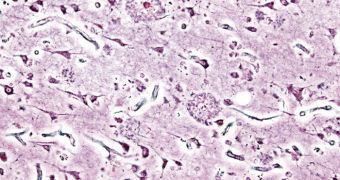Researcher at Cambridge Cognition, a spin-off of the University of Cambridge, announced that they will make an Alzheimer's early detection method available to general practitioners (GP) very soon. The tool differentiates between dementia and normal, age-related memory loss.
As doctors know all too well, loss of memory and other superior cognitive functions are some of the primary symptoms indicating the onset of neurodegenerative conditions such as Alzheimer's.
As such, accurate detection and verification of these symptoms is very important for dictating both diagnosis and treatment. What the Cambridge Cognition team did was develop a memory test that is aimed specifically at determining instances when this form of dementia sets in.
Experts say that they managed to discover the characteristics of these two types of memory loss, and create a simple, rapid, objectively-scored GP assessment tool to differentiate. If employed at a large scale, the test could make all the difference for the developed world's aging population.
University of Cambridge neuropsychologists Trevor Robbins and Barbara Sahakian are behind the original test, which is called Paired Associates Learning (PAL). The two are now consultants for the spin-off company.
Cambridge Cognition is now selling CANTAB®, a touch-screen device-based neuropsychological test that can easily be administered by a physician. In excess of 500 universities, institutes and hospitals in more than 50 countries have already used these diagnostics instruments.
What the company plans to do soon is to create the first mobile-platform version of the CANTAB Mobile test. This will increase the mobility of healthcare workers and doctors, allowing them to triage patients quickly and effectively at locations other than hospitals.
“Alzheimer’s disease generally starts by affecting the hippocampal formation in the brain. This brain area is important for episodic memory, including locating objects in space, such as where you left the car in the car park,” says Sahakian, a professor of clinical neuropsychology at Cambridge.
“Therefore, the earliest way to detect memory problems in Alzheimer’s patients is to assess their episodic memory. One methodology that I’m familiar with, because I helped develop it, is the CANTAB Paired Associates Learning (PAL) – a method of remembering where things are in space,” she adds.
“This was set up to evaluate and detect Alzheimer’s disease early. It is hoped that earlier diagnosis will result in more effective interventions to prolong the patient’s independence,” the expert goes on to say.

 14 DAY TRIAL //
14 DAY TRIAL //